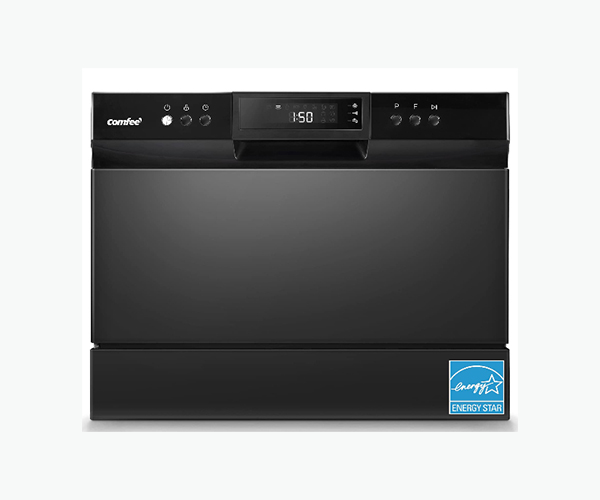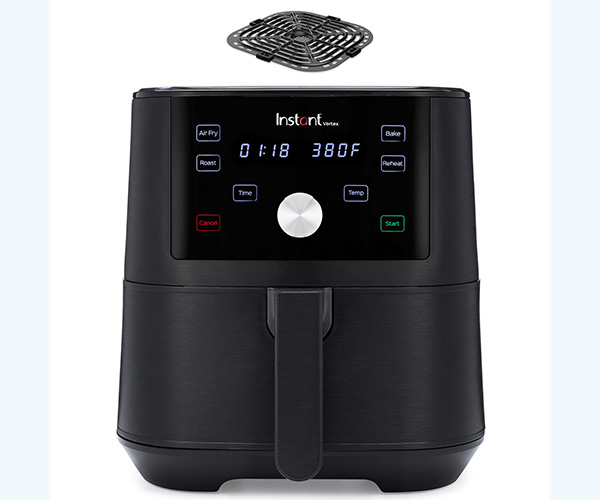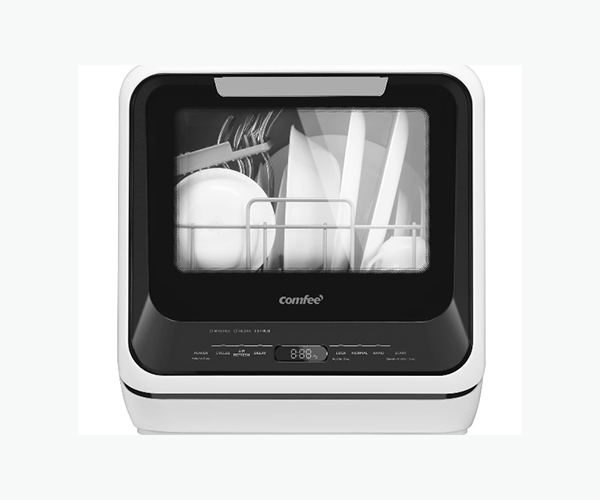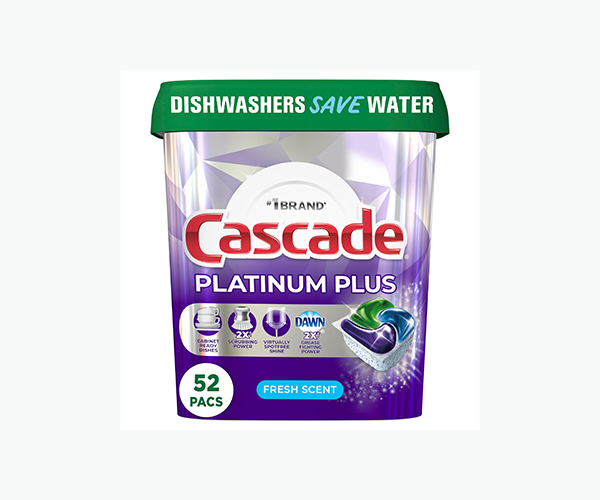Introduction
Dishwashers are an essential appliance in modern kitchens, offering convenience and efficiency in handling one of the least pleasant household chores—washing dishes. However, what happens when this trusty machine begins to emit unpleasant odors? A smelly dishwasher is not only off-putting but can also impact the cleanliness of your dishes. In this comprehensive guide, we’ll explore the various causes of dishwasher odors, how to clean and maintain your dishwasher, and how to prevent these smells from occurring in the future.
Understanding the Common Causes of Dishwasher Smells
Dishwasher smells can originate from several sources. Understanding these causes is the first step toward eliminating the odors and restoring freshness to your appliance.
Trapped Food Particles
One of the most common reasons your dishwasher might smell is due to trapped food particles. When you load dishes into the dishwasher, remnants of food often get rinsed off during the wash cycle. While most of these particles are washed away, some can become trapped in the filter, spray arms, or door seals. Over time, these trapped particles can decompose, leading to a foul smell that permeates the interior of the dishwasher.
In particular, the dishwasher filter is a prime spot for food particles to accumulate. If not cleaned regularly, these particles can create a breeding ground for bacteria, contributing to the unpleasant odor. Similarly, the spray arms, which are designed to distribute water evenly throughout the dishwasher, can become clogged with food debris, reducing their efficiency and causing odors to linger.
Mold and Mildew Growth
Mold and mildew thrive in damp, dark environments—conditions that are often present in dishwashers. After a cycle, moisture can remain inside the dishwasher, especially if the door is kept closed. This moisture, combined with residual food particles, creates an ideal environment for mold and mildew to grow. These fungi can produce a musty smell that becomes increasingly noticeable over time.
The rubber door seals, which help to keep water inside the dishwasher during a cycle, are another area prone to mold and mildew. The folds and crevices in the seals can trap moisture and food particles, making them a perfect spot for mold growth. Regular cleaning of these seals is essential to prevent the buildup of mold and mildew.
Standing Water
Improper drainage is another culprit behind dishwasher smells. If water is not draining correctly, it can stagnate at the bottom of the dishwasher, leading to a swampy, unpleasant odor. Standing water can be caused by a clogged drain or a malfunctioning pump, both of which prevent the dishwasher from expelling water efficiently.
In some cases, standing water might not be immediately visible, as it can remain trapped under the dishwasher floor or within the drain system. Over time, the stagnant water can become a breeding ground for bacteria, which contributes to the foul smell.
Clogged Drain or Filter
A clogged drain or filter can lead to multiple issues within your dishwasher, including unpleasant odors. The drain is responsible for removing dirty water from the dishwasher after each cycle, but if it becomes clogged with food particles, grease, or other debris, it can hinder this process. This can result in standing water, as mentioned earlier, and the subsequent odors that follow.
The dishwasher filter, located near the drain, is designed to catch large food particles and prevent them from clogging the drain. However, if the filter itself becomes clogged, it can no longer perform its function effectively, leading to a buildup of food debris and, eventually, a bad smell.
Plastic Odors from New Dishwashers
If you’ve recently purchased a new dishwasher and noticed a strong plastic smell, you’re not alone. This is a common issue with new appliances, and it typically occurs because of the manufacturing process. When the dishwasher is used for the first few times, the heat generated during the wash cycle can cause the plastic components to emit a smell.
This odor usually fades after a few cycles as the dishwasher breaks in. However, if the smell persists beyond the first week of use, it may indicate that the plastic components are not heat-resistant enough or that the appliance is overheating. In such cases, it’s advisable to contact the manufacturer or the retailer for further assistance.

Identifying the Source of the Smell
Once you’ve identified the potential causes of dishwasher odors, the next step is to pinpoint the exact source. This involves a combination of inspection, cleaning, and testing.
Performing a Visual Inspection
Start by conducting a thorough visual inspection of your dishwasher. Begin by examining the interior, paying close attention to areas where food particles are likely to accumulate, such as the filter, spray arms, and door seals. Remove the lower dish rack to gain better access to the filter and drain area.
Check the filter for any visible debris or buildup. If the filter appears dirty, remove it according to the manufacturer’s instructions and clean it thoroughly under running water. Be sure to inspect the spray arms as well; look for any food particles or blockages in the spray holes that could be contributing to the smell.
The door seals are another area to inspect closely. Run your fingers along the rubber seals to check for any trapped food particles or signs of mold growth. If the seals are dirty, clean them with a mixture of warm water and mild dish soap.
Running a Cleaning Cycle
After performing a visual inspection, run a cleaning cycle to help flush out any remaining debris and reduce odors. Many dishwashers have a dedicated cleaning cycle option, but if yours doesn’t, you can run a normal cycle with a few modifications.
Start by placing a dishwasher-safe cup filled with white vinegar on the top rack of the dishwasher. Vinegar is an excellent natural cleaner and deodorizer that can help break down grease, grime, and odors. Run the dishwasher on the hottest cycle available. Once the cycle is complete, sprinkle a cup of baking soda across the bottom of the dishwasher and run a short cycle with hot water. Baking soda will help neutralize any remaining odors and leave your dishwasher smelling fresh.
Sniff Test for Different Odors
To further pinpoint the source of the smell, try performing a sniff test after the cleaning cycle. Open the dishwasher and take note of any lingering odors. If the smell is still present, consider the type of odor:
- Rotten Egg Smell: This typically indicates a buildup of food particles or grease, often in the filter or drain.
- Musty Smell: A musty odor is usually a sign of mold or mildew growth, particularly around the door seals.
- Chemical Smell: A chemical odor might suggest a problem with the detergent or rinse aid you’re using, or it could be related to the plastic components of a new dishwasher.
By matching the smell to its likely source, you can narrow down the areas that need further cleaning or attention.
How to Clean a Smelly Dishwasher
Cleaning your dishwasher regularly is crucial to preventing odors and ensuring that your appliance functions optimally. Here’s how to tackle each component of your dishwasher to eliminate smells.
Cleaning the Filter
The filter is one of the most important components to clean, as it traps food particles and debris that can lead to odors. To clean the filter:
- Remove the Filter: Locate the filter at the bottom of the dishwasher, typically near the drain. Twist it counterclockwise to remove it from its housing.
- Rinse the Filter: Rinse the filter under warm running water, using a soft brush or sponge to remove any trapped food particles or grease. Be gentle to avoid damaging the filter’s mesh.
- Soak if Necessary: If the filter is heavily soiled, soak it in a solution of warm water and mild dish soap for 15-20 minutes. This will help to loosen stubborn debris.
- Reinstall the Filter: Once the filter is clean, rinse it thoroughly and reinstall it by twisting it clockwise until it locks into place.
Cleaning the filter regularly, ideally once a week, will prevent odors from developing and keep your dishwasher running efficiently.
Cleaning the Spray Arms
Spray arms are responsible for distributing water throughout the dishwasher during a cycle. If they become clogged with food particles or mineral deposits, they can reduce the efficiency of the dishwasher and contribute to odors. To clean the spray arms:
- Remove the Spray Arms: Depending on your dishwasher model, you may need to unscrew or simply lift the spray arms to remove them.
- Clean the Spray Holes: Use a small brush, toothpick, or needle to clear any blockages from the spray holes. Be careful not to enlarge the holes or damage the spray arms.
- Rinse and Reinstall: Rinse the spray arms under warm running water to remove any loosened debris. Reinstall the spray arms by securing them back into place.
Regularly cleaning the spray arms will ensure that water is distributed evenly throughout the dishwasher, reducing the likelihood of odors.
Dealing with Mold and Mildew
If mold or mildew is the source of the smell, it’s essential to clean the affected areas thoroughly. Here’s how:
- Clean the Door Seals: Dip a cloth or sponge in a mixture of warm water and white vinegar or a mild bleach solution. Wipe down the door seals, paying extra attention to any folds or crevices where mold may be hiding.
- Run a Bleach Cycle: If the mold problem persists, you can run an empty cycle with a cup of bleach on the top rack. Be sure not to mix bleach with any other cleaning agents, as this can create harmful fumes.
- Dry Thoroughly: After cleaning, leave the dishwasher door open for a few hours to allow the interior to dry completely. This will help prevent mold and mildew from returning.
Mold and mildew are persistent problems that can lead to health issues if not addressed. Regular cleaning and drying are key to keeping your dishwasher mold-free.
Clearing the Drain and Drain Hose
A clogged drain or drain hose can cause standing water and subsequent odors. To clear the drain and drain hose:
- Access the Drain: Remove the bottom dish rack to expose the drain area. Check for any visible blockages or debris and remove them.
- Clear the Drain Hose: The drain hose is usually located at the back of the dishwasher and connects to the sink’s plumbing. If you suspect the hose is clogged, disconnect it and use a long, flexible brush or plumber’s snake to clear any blockages.
- Reassemble and Test: After clearing the drain and hose, reassemble the dishwasher and run a short cycle to ensure that water is draining properly.
Regular maintenance of the drain and hose will prevent clogs and the associated odors.
Deep Cleaning Methods
For a more thorough cleaning, you can perform a deep cleaning of your dishwasher:
- Vinegar Rinse: As mentioned earlier, run a cycle with a cup of white vinegar on the top rack. This will help break down grease, lime scale, and odors.
- Baking Soda: After the vinegar cycle, sprinkle a cup of baking soda across the bottom of the dishwasher and run a short, hot cycle. Baking soda will neutralize any remaining odors.
- Commercial Cleaners: If natural cleaning methods aren’t enough, consider using a commercial dishwasher cleaner. These products are designed to tackle tough stains, grease, and odors.
Deep cleaning your dishwasher once a month will keep it in top condition and free from unpleasant smells.

Preventing Future Dishwasher Odors
Preventing dishwasher odors is easier than dealing with them once they occur. By following these simple maintenance tips, you can keep your dishwasher smelling fresh and running smoothly.
Routine Maintenance Tips
Routine maintenance is key to preventing odors and ensuring that your dishwasher remains in good working order. Here are some best practices:
- Scrape and Rinse Dishes: Before loading dishes into the dishwasher, scrape off excess food and rinse the dishes lightly. This will reduce the amount of food debris that ends up in the filter and spray arms.
- Clean the Filter Regularly: As discussed earlier, cleaning the filter weekly will prevent food particles from accumulating and causing odors.
- Wipe Down the Interior: After each cycle, wipe down the interior of the dishwasher, including the door seals and the area around the drain. This will help remove any lingering moisture and food particles.
Proper Use of Detergents
The type and amount of detergent you use can also impact the smell of your dishwasher. Here’s how to use detergent effectively:
- Choose the Right Detergent: Use a high-quality detergent that is designed for dishwashers. Avoid using too much detergent, as this can lead to residue buildup and odors.
- Avoid Overuse of Rinse Aids: While rinse aids can help improve drying, using too much can create a film on the interior of the dishwasher that can trap odors. Follow the manufacturer’s recommendations for the correct amount to use.
Running the Dishwasher Regularly
Running your dishwasher regularly, even if it’s not full, can help prevent odors. This keeps water moving through the system, reducing the chances of standing water and bacteria buildup. If you don’t have enough dishes to fill the dishwasher, consider running a rinse cycle to keep things fresh.
Proper Ventilation
After each cycle, it’s important to ventilate your dishwasher to prevent moisture buildup. Simply leave the dishwasher door slightly ajar to allow air to circulate and dry out the interior. This simple step can go a long way in preventing mold, mildew, and odors.
When to Call a Professional
While many dishwasher odors can be resolved with regular cleaning and maintenance, there are times when professional help may be necessary.
Recognizing Persistent Odors
If you’ve tried all the cleaning methods mentioned and the smell persists, it may be time to call a professional. Persistent odors can be a sign of a more serious issue, such as a problem with the dishwasher’s plumbing or an internal component that needs repair.
A professional technician can diagnose the issue and recommend the best course of action. In some cases, this might involve replacing worn-out seals, unclogging internal pipes, or even replacing the dishwasher altogether.
Potential Dishwasher Repairs
Depending on the issue, a professional may need to perform repairs to restore your dishwasher to full functionality. Common repairs include:
- Replacing Seals: Worn or damaged seals can lead to leaks and odors. A technician can replace these seals to ensure a tight fit and prevent moisture from escaping.
- Unclogging Internal Pipes: If the dishwasher’s internal pipes are clogged, a professional can use specialized tools to clear the blockages and restore proper drainage.
- Repairing or Replacing the Pump: A malfunctioning pump can prevent water from draining properly, leading to standing water and odors. In some cases, the pump may need to be repaired or replaced.
When considering repairs, it’s important to weigh the cost of the repair against the cost of a new dishwasher. If your dishwasher is older and requires multiple repairs, it may be more cost-effective to invest in a new appliance.
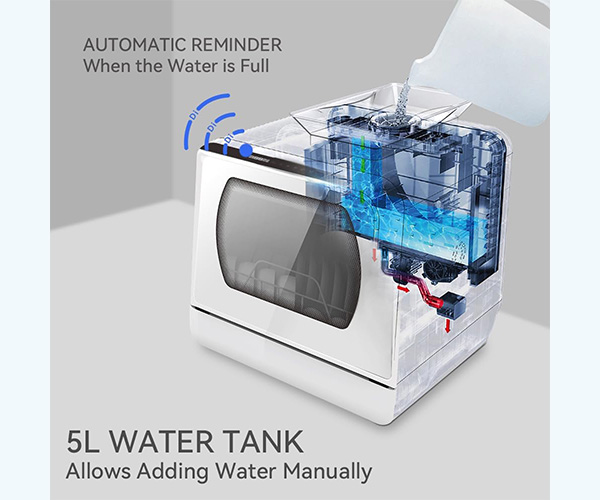
Conclusion
A smelly dishwasher is more than just a nuisance—it can affect the cleanliness of your dishes and the overall hygiene of your kitchen. By understanding the common causes of dishwasher odors and following the steps outlined in this guide, you can eliminate smells and keep your dishwasher running smoothly.
Remember, regular maintenance is key to preventing odors from developing in the first place. By taking a few simple steps, such as cleaning the filter, using the right detergent, and ventilating the dishwasher after each cycle, you can ensure that your dishwasher remains fresh and odor-free for years to come.
Frequently Asked Questions (FAQs)
How often should I clean my dishwasher?
- It’s recommended to clean your dishwasher’s filter and interior once a week, and to perform a deep clean with vinegar and baking soda once a month.
Can I use bleach to clean my dishwasher?
- Yes, but use it sparingly and only when necessary to remove mold or mildew. Never mix bleach with other cleaning agents.
Why does my dishwasher smell worse after a cycle?
- This could be due to standing water or trapped food particles that have decomposed during the cycle. Regular cleaning of the filter and drain can help prevent this.
Is it safe to use vinegar in the dishwasher?
- Absolutely. Vinegar is a natural cleaner and deodorizer that can help break down grease and eliminate odors.
Additional Resources
For more information on dishwasher maintenance and troubleshooting, check out these related articles:

